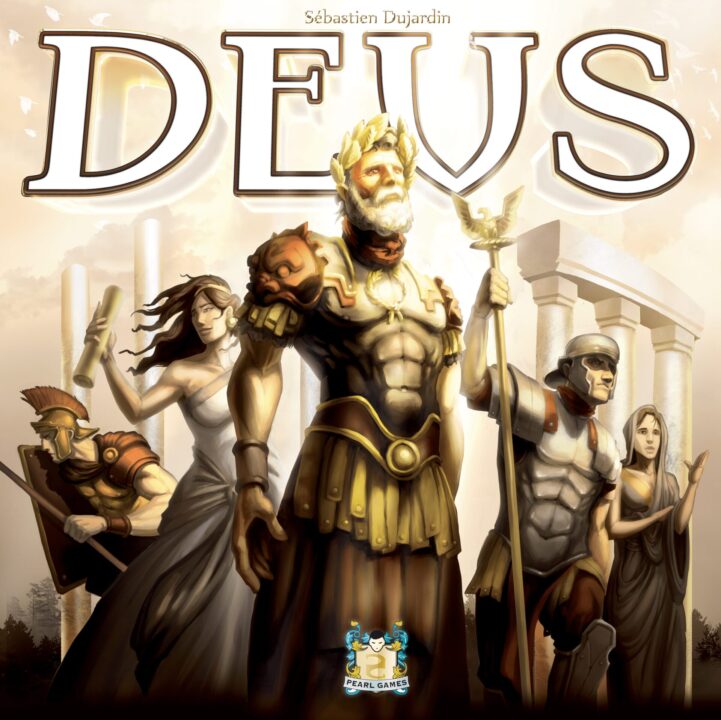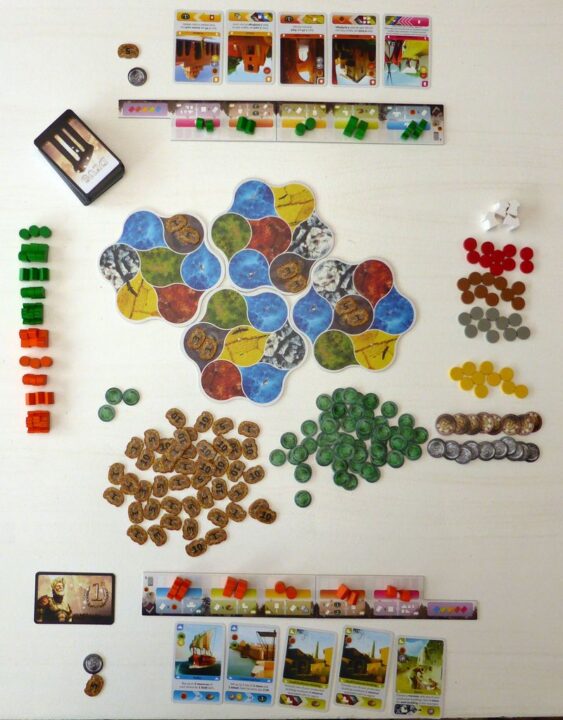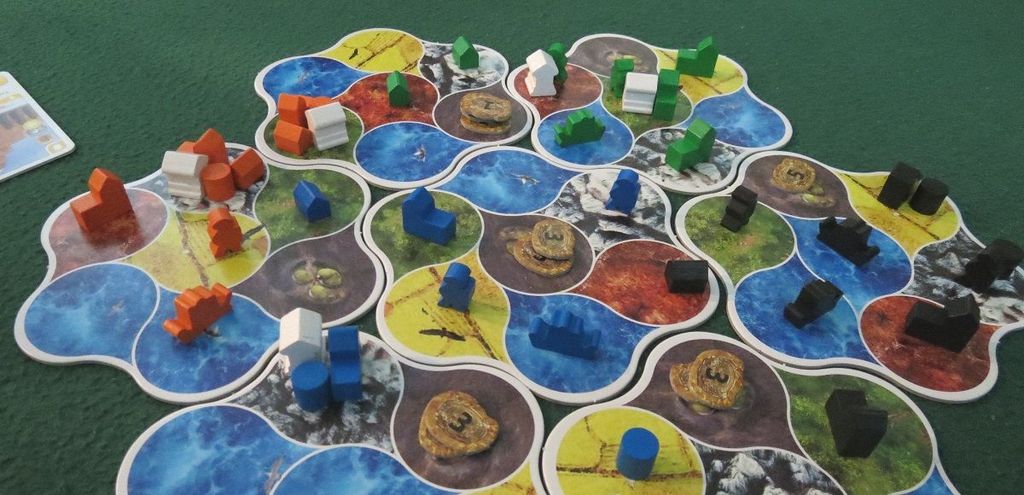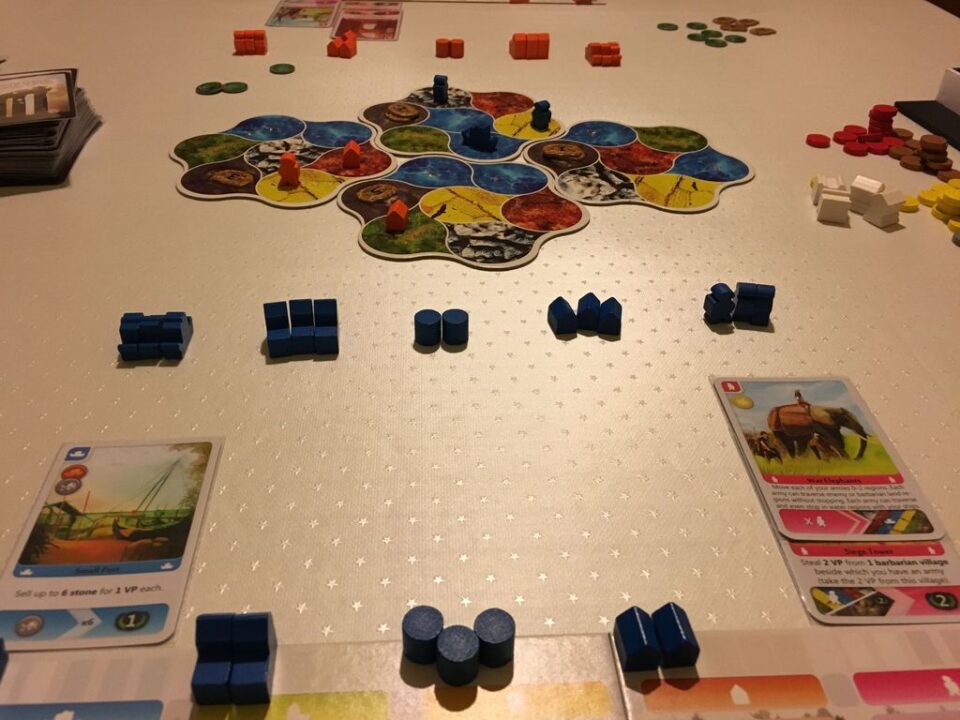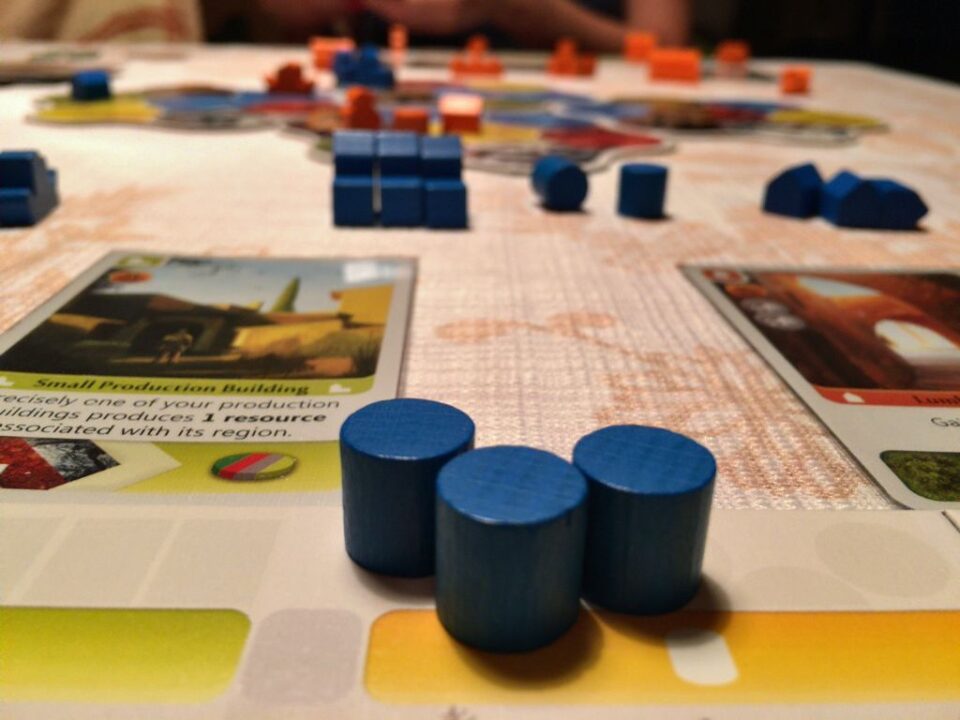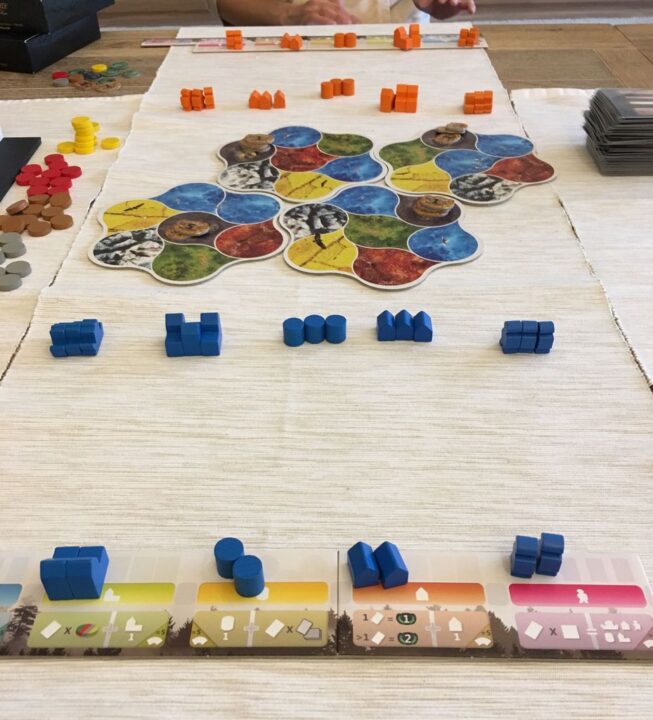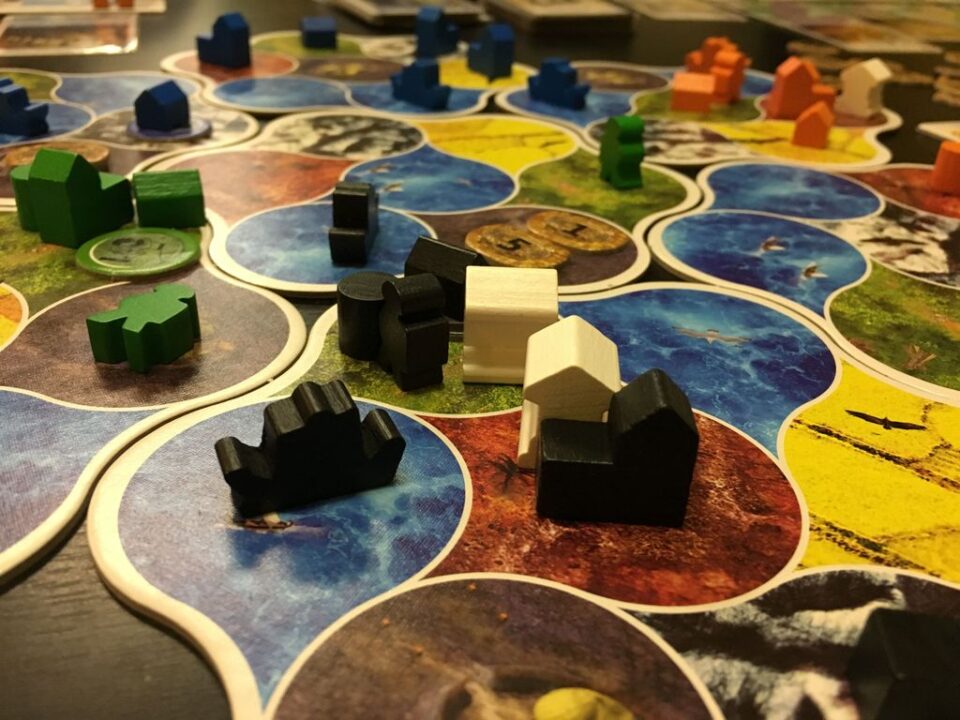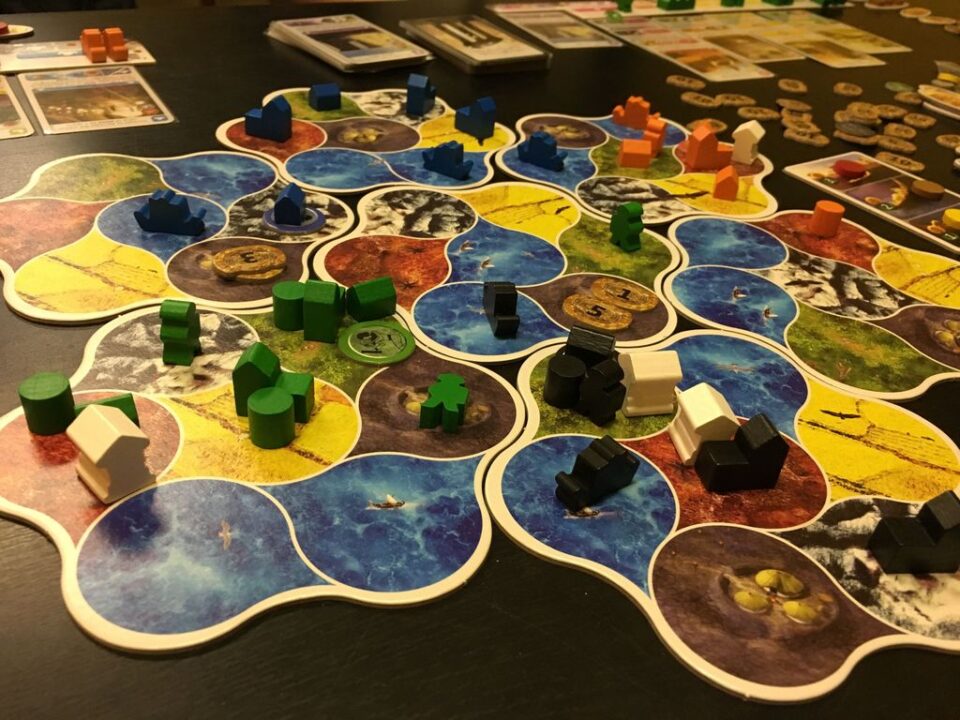Overview
Welcome to this review of Deus: an intricate game of ancient civilization building through strategic card play. I’ve dived deep into Deus’s profound tableau-building that challenges players to forge empires and dominate regions. What sets Deus apart are its core features that demand consideration. There’s the intense resource management that thrives on efficiency, the nuanced player interaction brimming with strategy, and the thrilling potential in card combinations that keep each game fresh and unpredictable. I’m here to unpack these elements, enriched with personal experiences from the game table, to provide a clearer picture of what Deus has in store for both neophytes and seasoned strategists alike.
How It Plays
Setting Up
To begin a game of Deus, players set up the central game board composed of multiple terrain hexes, place their starting temples and colonists, and draw their starting hand of five cards. Each terrain type aligns with a particular color of card, correlating to different types of actions and buildings.
Gameplay
Players take turns drawing and playing cards to build buildings, make offerings to the gods, and progressively expand their control over the different terrain types. Cards and buildings represent different resources and influence types, creating a rich web of strategic possibilities. Each action can potentially interact with previously played cards, triggering powerful combos and benefits.
Winning the Game
The goal of Deus is to amass the most victory points, which are earned through constructing buildings, maintaining a strong presence on the board, and pleasing the gods through efficient offering completion. The game ends once all temples are built, and the player with the highest score wins the game.
Want to know more? Read our extensive strategy guide for Deus.
Mastering Efficiency in Deus
In my countless games of Deus, I’ve come to appreciate the finesse required for Resource Management Efficiency. The age-old adage ‘less is more’ truly comes to life here. Raising the strategic bar, each brain-burning decision carries weight, and mastering this art is pivotal.
Optimizing Turns
Moreover, those critical decisions hinge on evaluating resource scarcity. I was once caught in a neck-and-neck game where my whole strategy revolved around generating a surplus of wood. In seemingly every turn, there was an indelible mark left by the intertwining paths to dominance – either through architectural advancements or military conquest fueled by thoughtful resource allocation.
Adapt & Thrive
Transitioning in gameplay always requires flexibility as available resources dictate your actions. No Deus Review can overlook this. Recalling one tense matchup, I adapted my strategy mid-game due to a sudden flurry of stone, which allowed for an unexpected, glorious monument build. This quick pivot demonstrated the delicious adaptability at Deus’s core.
Now, let our sights wander to the drawing table as we delve into Player Interaction Strategy, a realm where wit meets camaraderie.
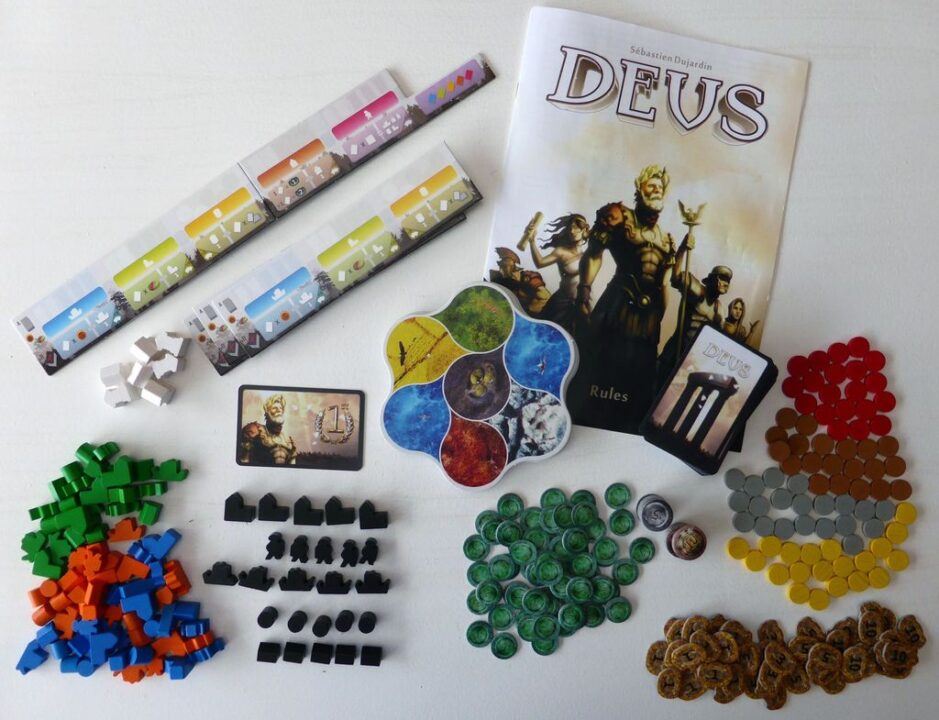
Skillful Maneuvering in Deus
In my journey through the Deus universe, one pivotal aspect I’ve noticed is the profound impact of player interactions. competitive edge often hangs in the delicate balance of these relationships. Initially, my focus was self-contained: build efficiently and expand territorially.
Rival Reconnaissance
However, as I got more entwined in the game’s intricacies, it dawned on me that observing opponents’ moves proved just as crucial as charting my own path. Knowing when to undercut their resource chains or strategically placing buildings to block expansions totally changed the course of conquest.
Collaboration or Chaos?
Interestingly, the Deus board game design nudges you to consider partnerships for trade benefits or at least to keep a tentative coexistence — until launching for that endgame swoop. While my playbook evolved from solitary strategist to savvy diplomat, intriguing dynamics blossomed out of necessity.
After encapsulating my experiences in this Deus review, I realized each play through ribbons seamlessly into the next topic: the harmony of card combination potential.
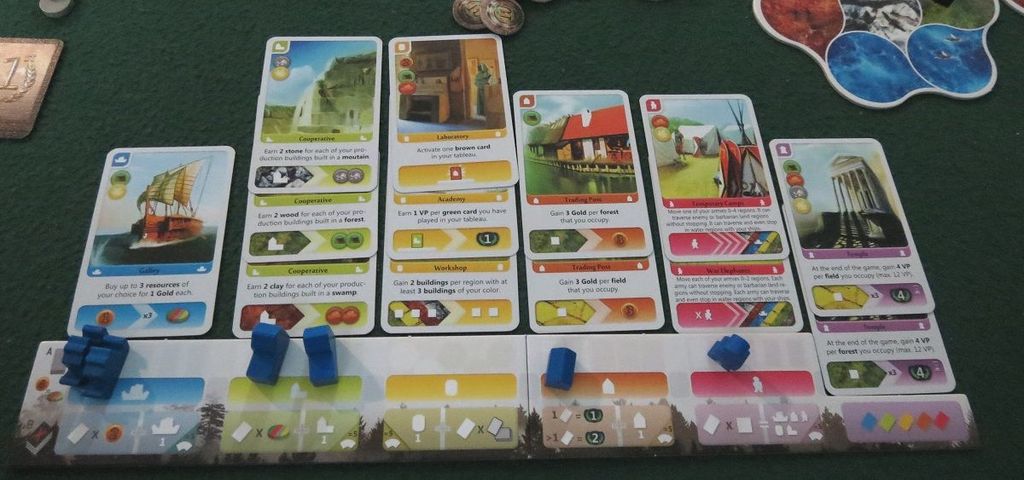
The Art of Card Synergy in Deus
Whenever I sit down to analyze a game in a Deus Review, it’s the card combination potential that often captivates me. In Deus, this aspect is like a hearty stew where each ingredient contributes to a rich, strategic banquet.
Rule-Bending Combos
I recall one session where a well-timed card utterly transformed my standing. Playing Deus can feel like conducting an orchestra, with every card adding a note to your symphonic strategy. The way one card’s ability can amplify another’s can leave a player feeling brilliant, or rueful if played by an opponent.
Strategic Innovations
Indeed, creativity flourishes under Deus’s system. Each game becomes a playground of innovation, supporters of your burgeoning empire. From practical resources to deity-inspired technology, your card arsenal is your pathway to triumph—or dramatic socialization.
With that in mind, does Deus make my shelf as a recommended fixture? Absolutely—fervently so.
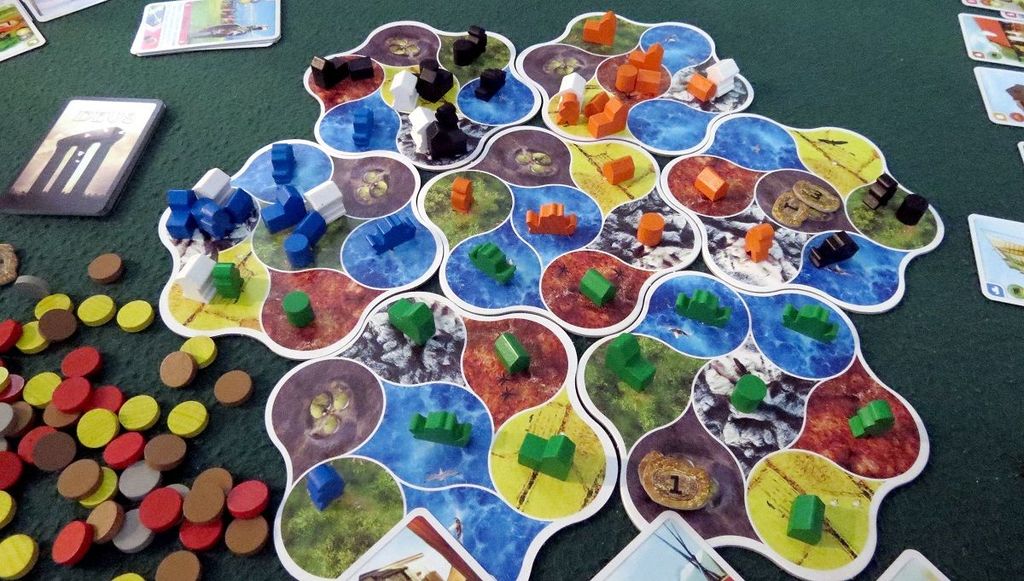
Conclusion
As we come to the end of this Deus review, it’s clear that this game stands out for its robust resource management, enthralling player interaction, and the vast potential for card combinations. Deus offers a dynamic experience that challenges your strategic mind and pushes you to adapt as the game unfolds. Each playthrough feels fresh, fostering social engagement, and generating memorable gaming sessions. If you’re a fan of building strategies and enjoy games with moderate complexity and high replay value, Deus certainly delivers. Overall, for those seeking a deeply engaging board game with a strong social component, Deus is a delightfully complex and rewarding choice.

